’Screamed for help’: Harrowing survivor stories as fight to end DV intensifies
Inspiring domestic violence survivors have opened up about their horrific experiences, while industry experts have revealed how the region will combat the growing issue of DV and the housing crisis.
Toowoomba DFV offences spike as housing crisis worsens
The housing crisis has left those experiencing domestic violence with nowhere to go as services struggle to provide safe accommodation.
Queensland Police Sergeant Tony Rehn said the critical housing crisis across the region was of great concern for people trying to escape domestic and family violence (DFV).
“If we needed a DFV victim rehoused right now, we haven’t got a house,” he said.
“We contact DVAC (Domestic Violence Action Centre), who then liaise with housing … we are having all sorts of trouble with emergency housing across the board.”
The Toowoomba Region vacancy rate is at 0.4 per cent, and Sergeant Rehn said while police officers’ jobs were to refer, transport and offer assistance where they could, “we simply don’t have the housing ability”.
Motels have been used, and Sergeant Rehn had been told of caravans in yards being shared.
The number of DVO applications made in Toowoomba have risen by 5.2 per cent this year up to April 30, compared to the 2020-21 year.
Contravene offences have risen 31.2 per cent, while flagged DFV offences with charges lodges have increased 118.6 per cent during the same time period.
However, shocking statistics show strangulation offences have increased 225 per cent for the year to April 30 compared with last year.
“We now know that a person using violence who puts their hands around a throat of a person experiencing violence, that person is probably 8-to 10 times more likely to die at their hands, because they have gone to that level … and are prepared to do that,” he said.
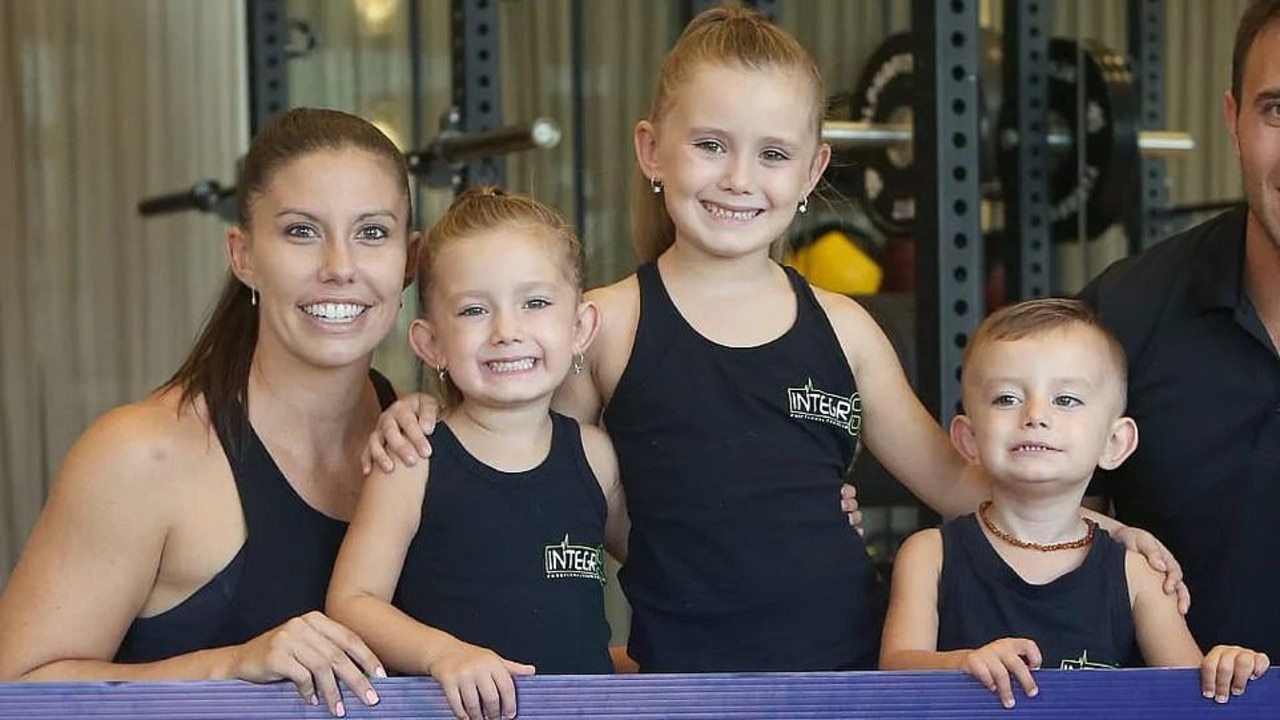
Region’s industry workers reveal how world will combat domestic violence
When Hannah Clarke and her three children were murdered by her estranged husband Rowan Baxter in 2020, the world began to look at domestic violence very differently, but so much more progression is still needed.
Domestic Violence Action Centre (DVAC) Toowoomba service manager Kath Turley said since the organisation expanded to the region in 2017, data showed a steady increase in people reaching out for support.
In fact, the number of referrals received from police in the past 12 months alone had increased by almost 60% and the service had engaged with more than 820 new people since the beginning of the year.
One of the key indicators measured when domestic violence is reported is the element of fear or signs of an uneven power distribution.
Ms Turley said while victims often believed they chose violent partners, perpetrators often used a number of strategies and tools to focus their attention and develop a relationship with someone who was often vulnerable.
She said once the perpetrator felt they were in control of the victim, they would often try to isolate them from loved ones to gain more control.
“I absolutely believe domestic violence is a choice and using behaviours that cause fear are strategies … sometimes perpetrators can even switch these behaviours on and off which is very tactful,” Ms Turley said.
“If we’re serious about tackling and ending domestic violence, it’s not just about offering support to victims, but providing resources to individuals who use violence.
“We’re strongly advocating to have more services available to individuals who can access support around their values and beliefs because it’s not as simple as an anger management course … an entire intervention process is needed to change their belief that they have the right to control someone, and that takes time,” she said.
DVAC team leader Sarah Warner said the service centre was responding to huge numbers but more resources were required to meet the demand.
“The death of Hannah Clarke and her children was absolutely devastating, but it’s not something that we hadn’t seen before,” Ms Warner said.
“I think we finally saw a level of emotional response in people that was worthy of these incidents in that moment.”
While domestic violence is often defined as physical, emotional and verbal abuse, it can also be as simple as a look, used to instigate fear.
Ms Turley said another misconception often made about domestic violence was that it primarily impacted people from low socio-economical backgrounds, however this was not the case.
Recommendations from the Hannah Clarke inquest which concluded in March, included additional training and resources, improved communication and information sharing.
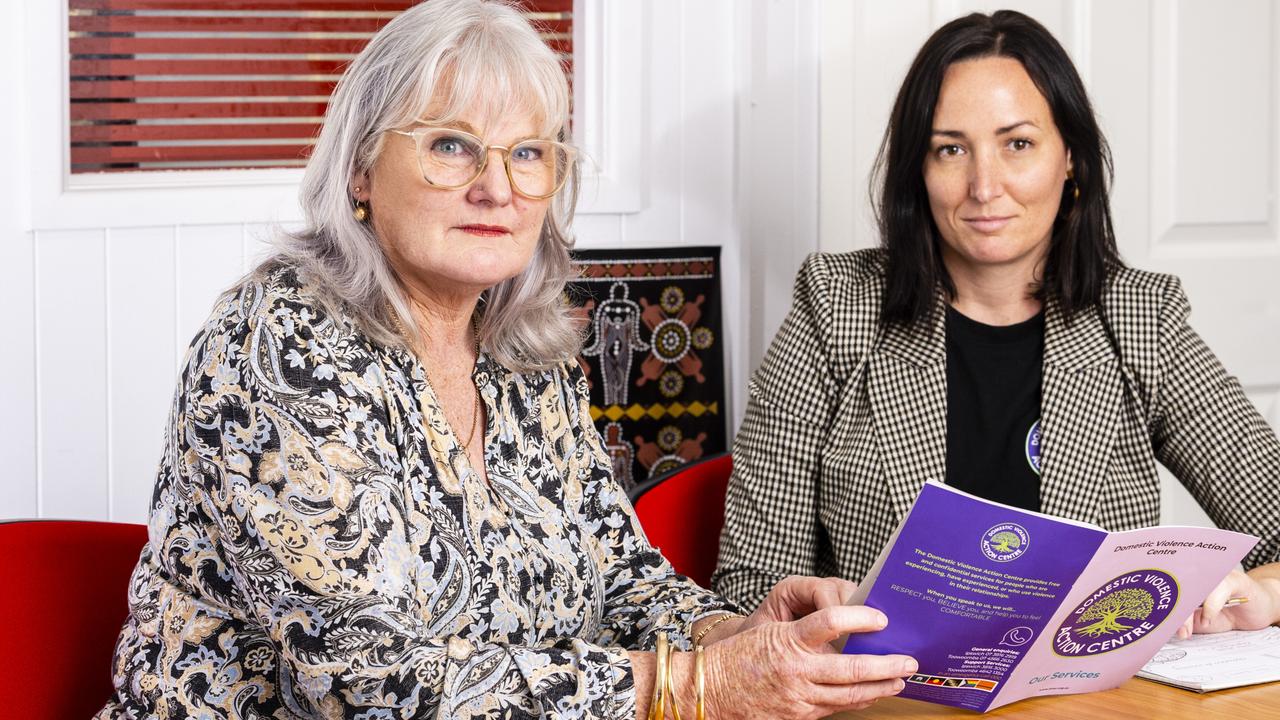
Love bombing: ‘How I ended up in a domestic violence relationship’
When Jane* met the man who would later become her husband, she had never heard of the terms “love bombing”, “gaslighting” or “coercive control”.
But those terms quickly became her reality over the course of a decade.
It’s a devastating reality for most, if not all survivors.
Jane, a lawyer with 25 years legal experience, was in her early 30s when she met her now estranged husband in 2002.
She said she was drawn to him in the beginning because of behaviours she now considered to be love bombing.
Love bombing is when someone overwhelms another person with demonstrations of affection as a manipulation technique.
Experts have also identified love bombing as behaviour which forms part of an abuse cycle.
From making her a sandwich for lunch most days to the extra special attention he would pay her in the early parts of their courtship, it was something she had never experienced before.
Three months into dating they were engaged and they married six months later.
“When someone love bombs you, they reel you in and capture you through things like marriage and getting pregnant, and I was all of those things almost immediately,” Jane said.
“As women, we have so many insecurities about the size of our breasts, the colour of our hair, our skin and whether or not we need Botox … so when you finally find this person after all this time who seems to understand you and seemingly accepts you wholeheartedly for who you are, you can’t help but fall for them.”
When the pair got married, Jane said that was when she noticed things started to change.
She said she wasn’t aware she was in a domestic violence relationship until she had left and it was articulated to her by professionals, and for a long time she felt very alone.
Years later when terms such as gaslighting, love bombing and coercive control entered public discussion, Jane said she had experienced a lot of the behaviour.
“I’m a very conservative person – I’m not a risk-taker and I wasn’t in any rush to get married … in the same way I would look at things for a client, I’m usually very cautious and like to observe what’s happening, but it just shows how successful strategies like love bombing are to lure people in, especially if they have insecurities,” Jane said.
“For a long time I thought my situation was unique, but it isn’t – it’s actually a situation that millions of people share, so it’s not just about looking at the violence, but how we end up in these relationships in the first place.”
Sadly for Jane, her experiences will have an everlasting impact on her life as she continues to struggle with post traumatic stress and admits she’s “half the person” she was.
As a survivor, she said she believed slogans that encouraged victims to stand up, speak up and speak out were “ridiculous.”
Jane said education for young people was essential.
“People can only speak about domestic violence in general terms or they risk litigation,” she said.
“It is safer to encourage slogans such as ‘say no to domestic violence’ and educate the community, particularly our young (people), on conflict resolution and what respectful relationships look like.”
Additionally, she said action needed to be taken in professional sports to reduce the amount of violence and discourage young men from thinking that culture was appropriate.
“You see rugby players throw punches and then when they walk off the field, they’re back slapping, they’re shaking hands, they’re talking on the microphone and they’re getting applauded … you don’t see that and you will never see that in a professional netball game,” Jane said.
“If we have soldiers who have PTSD, you don’t send them back into a war zone, but here in Australia, if you separate from someone who has perpetrated violence against you and you share children with them, we throw those victims back into the war zone.”
Jane, who now specialises in family law, said her personal experiences inspired her to help others in a similar situation.
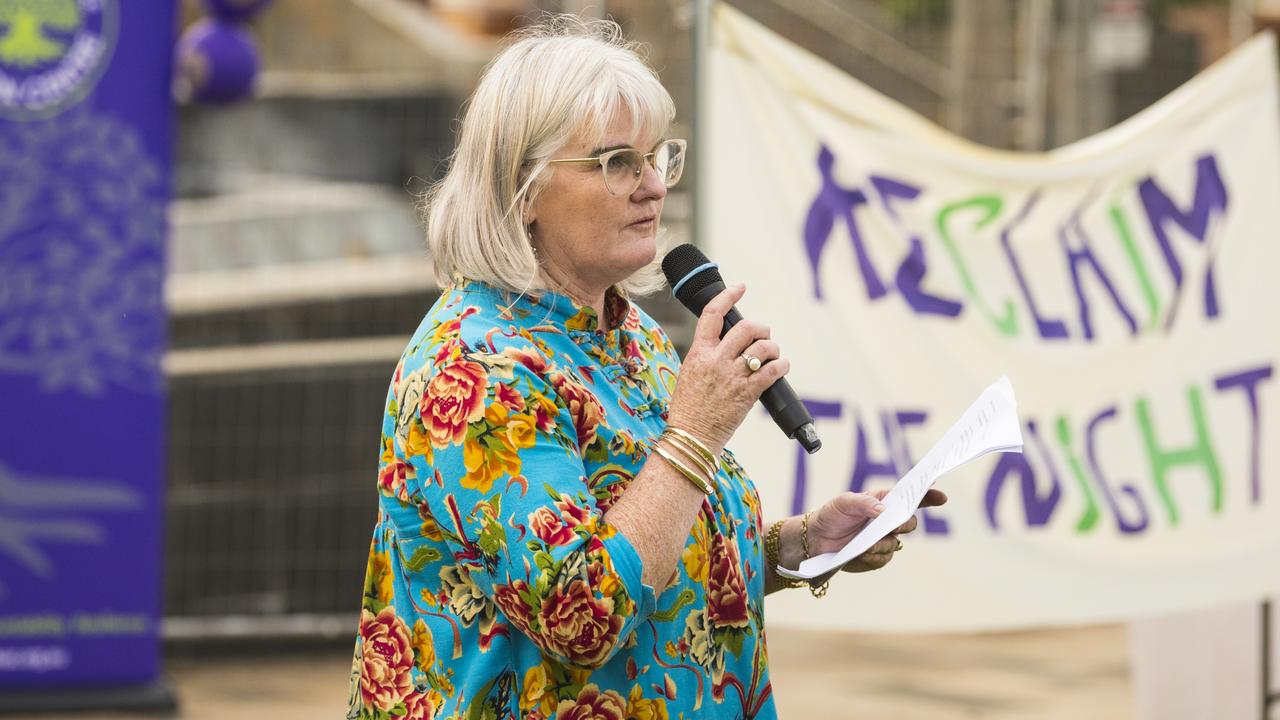
How beast in disguise charmed woman
Toowoomba woman Emily* thought she had found the person who would transform her world for the better.
But, on her honeymoon, she realised something wasn’t right.
“No one ever gave me a second look because of my weight, and he was the first guy to give me attention. I thought I was so lucky to find someone who wanted someone like me,” she said.
“I realise now that I am out that there was mental and psychological abuse right from the start. I just didn’t see it.”
For the following nearly two years of marriage, Emily said she had been subjected to mental, physical and sexual abuse by the person she believed she was meant to love for the rest of her life.
“My parents were ministers, so I had always been raised as ‘for better or for worse’ … I thought it was the worst part,” she said.
Emily was raped numerous times during her marriage and her husband reacted violently if she used his possessions like his laptop.
She said he had choked her one night, causing her to “black out” despite calls for help to nearby neighbours.
“There were two women on the other side of the bedroom wall – I could hear them talking,” she said.
“I screamed for help … but no one came.”
After Emily reported the incident to police, she said her husband’s behaviour got worse.
“I wanted to stay married, I just didn’t want him to hurt me anymore. He didn’t care,” she said.
Emily later miscarried, which she attributed to her husband’s abuse.
While the couple is now divorced, Emily said she would never be free from him.
“I pray every day that he will get help, but he’s disgusting … he’s not a good person.
“I forgive him, though, but not for him – for me. I needed to forgive to move on.”
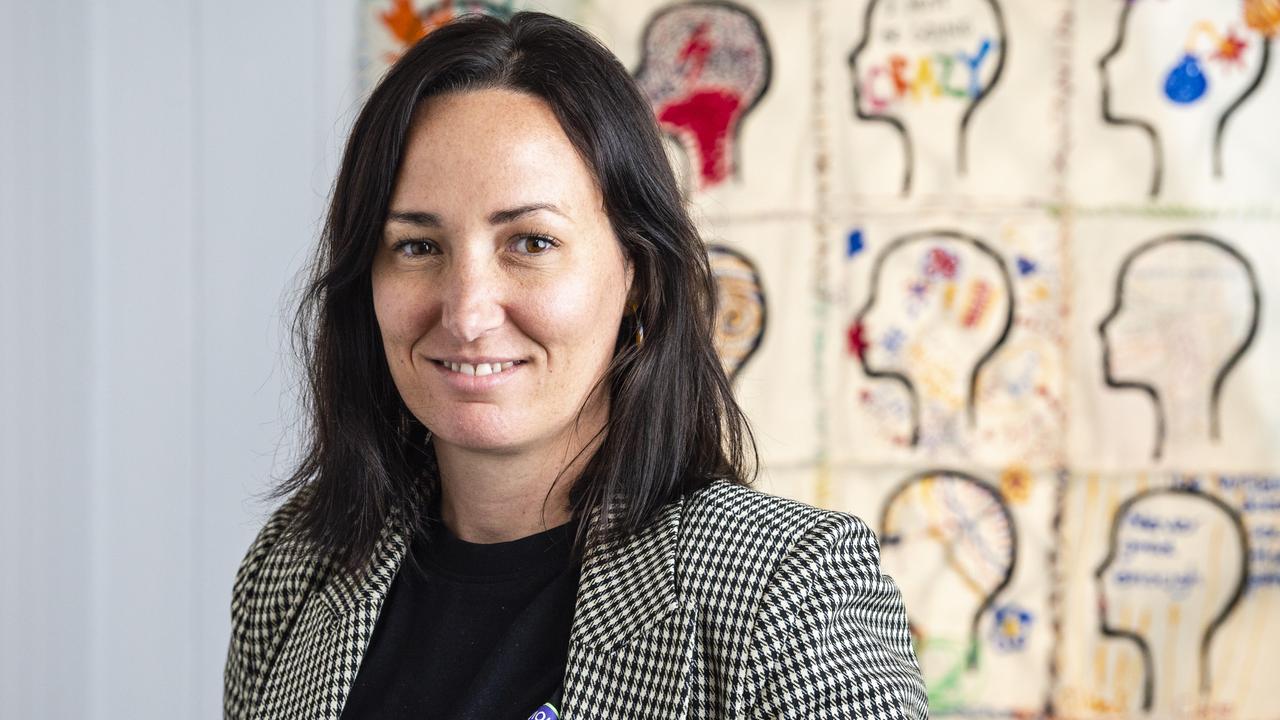
‘Man up’: Toowoomba man speaks out about violence stereotype
At just four years old, Daniel* was pushed into a world of anger, violence and humiliation.
For years, he would be subjected to mental, physical and sexual abuse.
Daniel said the domestic violence first began with his parents fighting in front of him, and despite not understanding the situation he was caught in, it would soon turn to emotional blackmail once his parents divorced.
In the years to follow, Daniel would find himself abused by former partners.
He said the women were frequently violent, sexually abusive and even conned him out of thousands of dollars.
Seeking help led to further complications, Daniel said, as many failed to take his situation seriously.
“I think there’s a stereotype, especially in Australia, that men who go through DV are weak and need to ‘man up’ and suck it up or leave,” he said.
“But it is so hard to do that and to stay away from it.
“I’ve found after a while I felt like I deserved it and that it was my fault I was going through it.
“I approached multiple people, including police, and was told to ‘man up’ and that I was an embarrassment.
“A few other times I confided in close friends even to find them gawking at me and making me feel alone.”
Now, Daniel is happily married to a woman who he said had saved him and showed him that he did deserve happiness and love.
“For those men going through DV, hold on. There is hope,” he said.
“It will take time, but eventually everything will fall into place.”
May is Domestic Violence Awareness Month and its purpose is to raise awareness and promote the message of zero tolerance.
*Please note names have been changed to protect the victim’s identity.
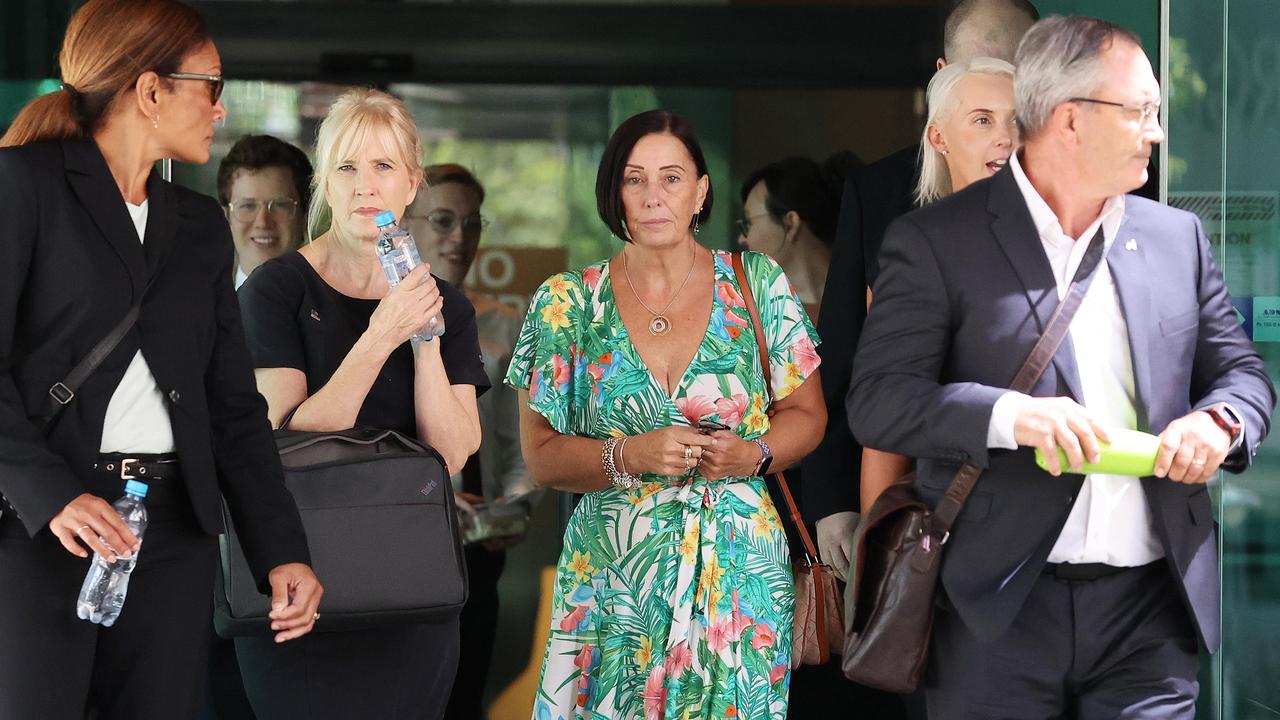
If you or someone you know needs support, please reach out to the below services:
• DV Connect womensline -1800 811 811
• DV Connect mensline – 1800 600 636
• 1800 RESPECT – 1800 737 732
• DVAC Toowoomba – 4566 2630
• Sexual Assault Helpline – 1800 010 120
• Lifeline – 13 11 14
• Kid’s Helpline – 1800 551 800
• Women’s Legal Service – 1800 957 957
If it is an emergency, please phone triple-0.








